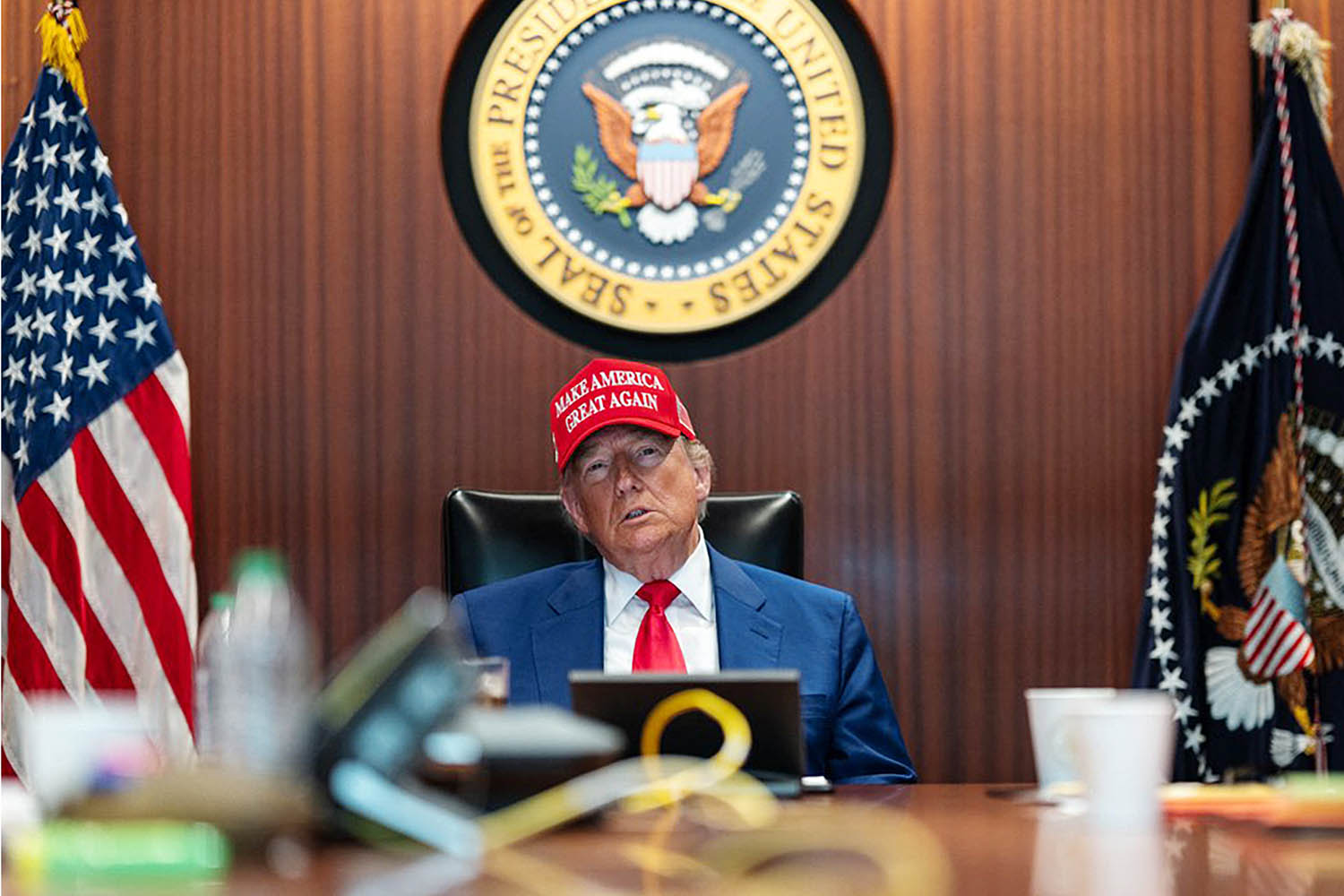One of the great questions about a Donald Trump presidency was whether the US, that self-styled leader of the free world, would retreat from the global stage, withdraw from international alliances and give up its role, imperfect as it was, as the world’s policeman.
Trump, supposedly, was an isolationist. America First would not only mean the end of US involvement in the Middle East, but a state department gutted to such an extent that Americans would no longer involve themselves in the messy business of solving quarrels in faraway countries between people of whom they know nothing.
Five short months in, that debate is over. America under Trump is not holding back from intervening anywhere in the world, using its military, diplomatic and economic might to bend countries to its will, enforce its values and boost its own power and prestige.
Trump’s tariffs policy has affected every single nation and territory on Earth, from China to the Heard and McDonald islands with its population of penguins. Trump has used the economic might of the US to force Colombia to accept returning migrants, and the Gambia to buy Elon Musk’s Starlink satellites.
He has also strong-armed his allies into dramatically increasing their defence spending, with almost all Nato members this week committing – eventually – to raising the amount they spend on national security to 5% of their GDP.
Despite a wave of cuts to the state department, the White House has also played far more of a diplomatic role than many predicted. As Trump boasted in a social media post last week – in which he bemoaned his lack of a Nobel peace prize – his administration has involved itself in negotiations of some description between Rwanda and the Democratic Republic of the Congo (DRC), India and Pakistan, Serbia and Kosovo, and Egypt and Ethiopia.
And Trump has used his bully pulpit to great effect too, interfering in elections in Germany, Poland and Romania by publicly backing far-right parties, while his vice-president and secretary of state have criticised the UK for its laws on freedom of speech. He has also had an impact on elections in Canada and Australia, though he is less likely to boast about those.
It is the use of force, though, that is the most dramatic change. After a decade in which the US had been reluctant to use its armed forces, Trump has now bombed two countries – Iran and Yemen – in the space of three months.
Related articles:
Just 10 days ago, Trump presided over an amusingly amateurish military parade marking the US army’s 250th birthday. Any rival superpowers watching US soldiers stroll haphazardly past their commander-in-chief may have convinced themselves there was little to fear from Trump’s America. But as the strike on Fordow demonstrates, the US remains the pre-eminent military superpower, the only nation able to drop a $2.1bn, 30,000lb bomb anywhere in the world.
Trump, right now, appears dominant. When he speaks, the world listens; when he acts, the world responds. But there are huge potential consequences. The breakdown of the international rules-based order has given the US the freedom to do what it wants. But it gives other countries the freedom to do what they want too.
Newsletters
Choose the newsletters you want to receive
View more
For information about how The Observer protects your data, read our Privacy Policy
Russia may be about to lose an ally in Iran, but if Vladimir Putin keeps his eye on the bigger picture, he may feel that Trump’s actions provide him with a greater excuse to continue his bombardment of Ukraine. China, too, may feel emboldened to test just how committed the west is to maintaining Taiwan’s independence.
The US, arguably, could attempt to prevent both Russia and China from achieving their territorial goals. But Trump has shown already that he falsely views Volodymyr Zelenskyy, the Ukrainian president, as the primary aggressor in that war, while he has spoken often of his respect for Xi Jinping, referring to the Chinese leader as “a very special man” whom he “likes a lot”.
As Monica Duffy Toft, a professor of international politics at the Fletcher School of Law and Diplomacy, wrote in a Foreign Affairs essay earlier this year, it is possible that we are moving to a world order with three great powers – the US, Russia and China – operating with complete freedom in their own “spheres of influence”.
All three of those nations, of course, are nuclear powers. Which brings us back to Iran, a nation which does not currently possess nuclear capability. If it did, it would not have been attacked.
If the regime survives, the incentives to redouble efforts to build a nuclear bomb are obvious. If this is not depressing enough, consider how many other nations may learn the lesson that in this new emerging world order, the strongest can do what they want. And the strongest – the US, Russia, China, and of course Israel – all have nuclear weapons.
Photograph by White House/AFP via Getty Images



